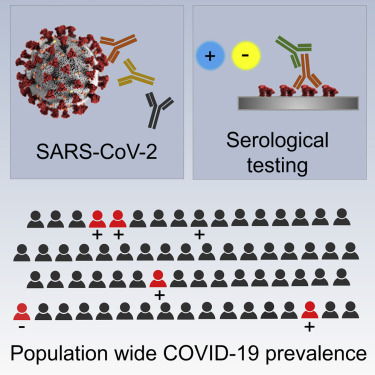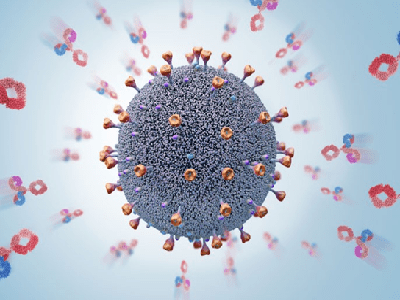Serological Tests in the Detection of SARS-CoV-2 Antibodies
Laboratory diagnosis based on ELISA method
Enzyme-linked immunosorbent assay (ELISA) is an immunochemical test used to measure the antigen of a pathogen or antibody against it. Payvand Clinical and Specialty laboratory, with its experienced staff and the use of the latest methods in the world, has extensive experience in the development of laboratory diagnosis and diagnostic methods based on ELISA and immunoassay techniques.
As mentioned, ELISA is one of the most common methods used in the diagnosis of diseases is the method of measuring the level of antibodies against the disease agent or pathogen antigen for diagnosis. This test is especially useful for diagnosing infectious diseases, which are usually quantitative, and tells us how much antibody or antigen is present in the sample. Knowledge of the desired antigen/antibody concentration in the relevant samples is clinically important for the assay because this information determines the sensitivity of the assay needed to diagnose the disease.
ELISA diagnostic tests are of acceptable sensitivity and can be performed on a blood sample (serum or plasma) of the sample. As a result, the ELISA diagnostic method is welcomed by most large laboratory diagnostics.

Laboratory detection of antibodies against Corona spike virus protein (SARS-CoV-2 anti-spike protein RBD IgGs) at Payvand Lab. will be done by using valid kits by euroimmun company and performed daily basis. The purpose of this test is to confirm the production of antibodies in the body that protects a person from re-infection with severe COVID-19 infection or hospitalization. These antibodies may also be caused by infection with SARS-CoV-2.
Laboratory diagnosis of coronary antibodies (serology): Information for customers
Laboratory diagnosis of Coronavirus antibodies looks for antibodies in a sample to determine if a person has previously been infected with the COVID-19 virus. The COVID-19 corona antibody test can help identify people who may have SARS-CoV-2 virus or who have recovered from COVID-19 infection.
At present, researchers do not know if the presence of antibodies means that you are immune to COVID-19 or if you are safe, how long does it take, however they are still researching it. In general, people who have received the COVID-19 vaccine do not recommend a laboratory diagnosis of coronavirus antibody to determine immunity or protection against COVID-19, as it can only determine how well your immune system responds to the infection.
The global epidemic of severe acute coronavirus syndrome SARS-CoV-2 has led to active research into its diagnosis and pharmacological therapies. While reverse transcription-polymerase chain reaction (qRT-PCR) is the most reliable method for detecting SARS-CoV-2 viral genes, serological testing for specific antiviral antibodies is also helpful.
The Payvand Clinical and Specialty laboratory, after obtaining the necessary approvals from competent authorities, including the Vice-Chancellor of the University and the Department of Laboratories of Shahid Beheshti University of Medical Sciences and the Health Reference Laboratory, from the beginning of the CoVID-19 disease epidemic, performed CoVID-19 molecular test and the serological (antibody) coronavirus. the name of this laboratory is included in the list of collaborating laboratories for molecular detection of the new coronavirus (CoVID-19).
This test can be performed daily and all steps of the work can be performed according to the latest national and international guidelines with the best level of accuracy and speed in a separate section from other laboratory sections.
For advice and more information, call 71400004.
References:
https://www.nature.com/articles/s41392-021-00523-5
https://www.sciencedirect.com/science/article/pii/S2666379121000021
https://www.mypathologyreport.ca/fa/covid-19/


